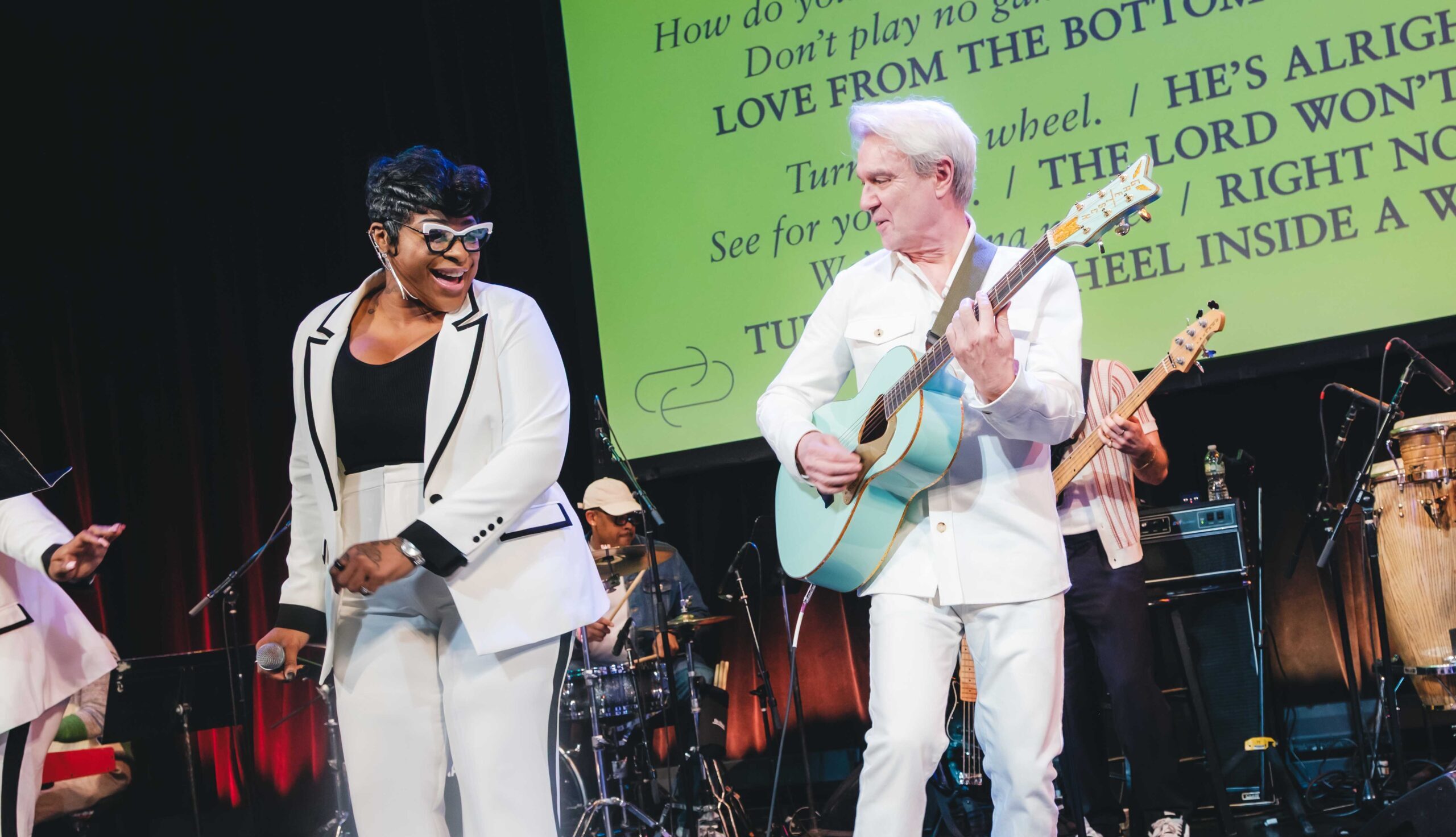On October 8, to celebrate five years of publishing, Reasons to be Cheerful will host the biggest event we’ve ever staged: a live variety show at New York City’s Town Hall. Alongside a full slate of wacky and whimsical acts, the show will include a few moments in which we bring to life the kinds of solutions stories that RTBC is all about.
One of those moments will explore efforts to make New York City’s public spaces better. We spoke with community advocate Rosa Chang, who will be speaking at the event with Chief Public Realm Officer Ya-Ting Liu, about her work to create a new park under the Manhattan side of the iconic Brooklyn Bridge.
Last May, you were featured in a great RTBC story about how skateboarding plazas are reviving cities. For those who haven’t read that story, what is Gotham Park and how did it come about?
A little while ago, I came across this dark, desolate, barren, empty space underneath one of our most beloved landmarks, which happens to be the Brooklyn Bridge. At the time, we were trying to create or find spaces that we could utilize for our kids. Down in Lower Manhattan, we have enormous density, but we don’t actually have a lot of open space. So while our population grows, the space that we can utilize seems to shrink.
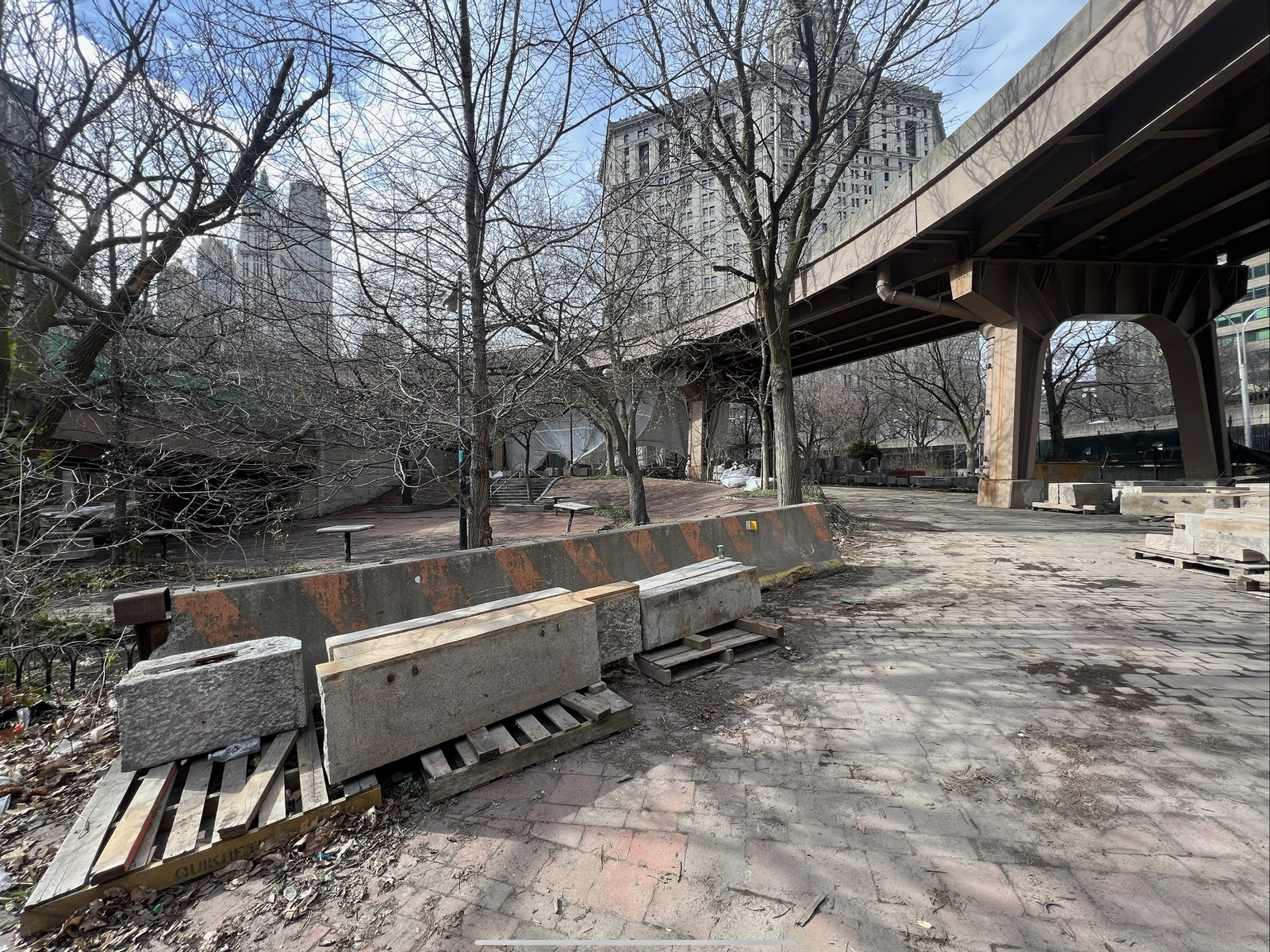
When I saw the space, my mind exploded. So I started sniffing around just a little bit to see: Hey, what’s up? Why is it all empty? Maybe they’re planning a park.
They were not planning a park.
I decided to put my stubbornness to good use and see what we could do. When I started to dig deeper into it, I discovered that there had actually been a park in some areas of the site before; it had been known as the Brooklyn Banks. It was like the home of East Coast street-style skateboarding.
I started talking to people who had grown up with that space being their second home, the place where they could connect with other people — maybe some of them were misfits and they didn’t didn’t find their people until they found this place.
It wasn’t just about open space. It was about a park being a place where you could build community and the supportive infrastructure that helps to propel you into the person that you want to be.
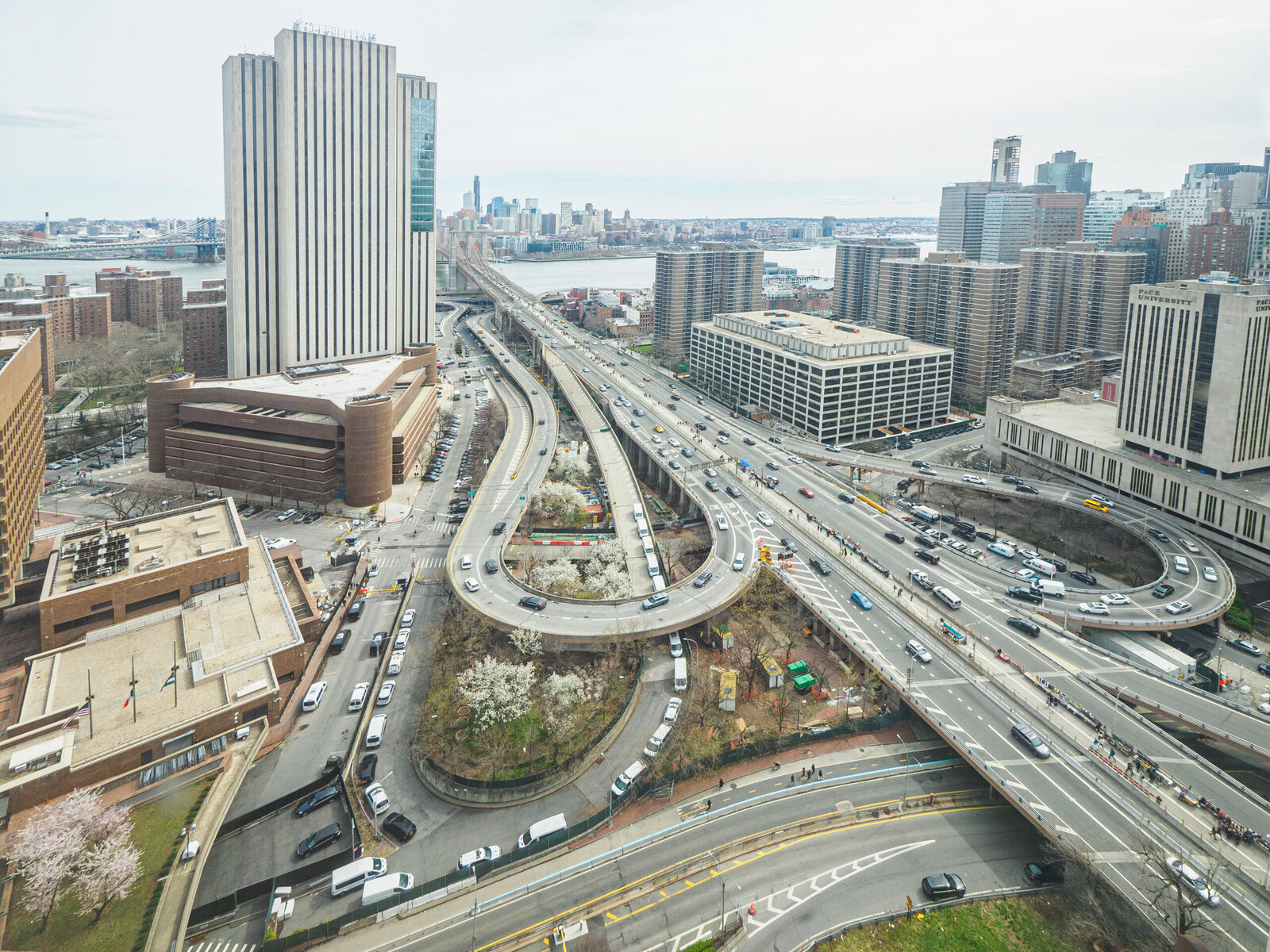
Were you always interested in public spaces?
When I was young, I didn’t have the opportunity to travel at all. My parents were too busy working, we had no money. Then, when I was 16, I went on a student exchange trip to Paris for the very first time ever. If you can imagine growing up in the suburbs where everything looks exactly the same, really boring, and then you step out into Paris — my brain exploded.
I didn’t realize until that point that the way that cities were designed and the spaces that they created could actually affect you on the inside, how you felt in your heart and what you suddenly realized was possible. It did that for me.
To come back to present-day: Through doing this work, if we are able to create a space that explodes some other kid’s mind, that makes them realize that incredible things are possible, that human beings are actually capable of writing poetry in stone, and that we can actually inspire the next generation beyond what they thought was possible because we did things that we didn’t know were possible — isn’t that an incredible act for humanity?
Weighed down by negative news?
Our smart, bright, weekly newsletter is the uplift you’ve been looking for.At our upcoming variety show, you will be presenting with Chief Public Realm Officer Ya-Ting Liu. How did you start working together?
I was introduced to her by James Archer, who also works at City Hall. This was right in the middle of Covid, which was so affected by the lack of safe, open space in our community, but also the AAPI hate that was going on with Chinatown just to our north. It felt like a very precarious time.
She walked the site with me and James and she was like, “I completely get it. This must be done.” We’ve been working together on making it happen ever since, which is amazing.
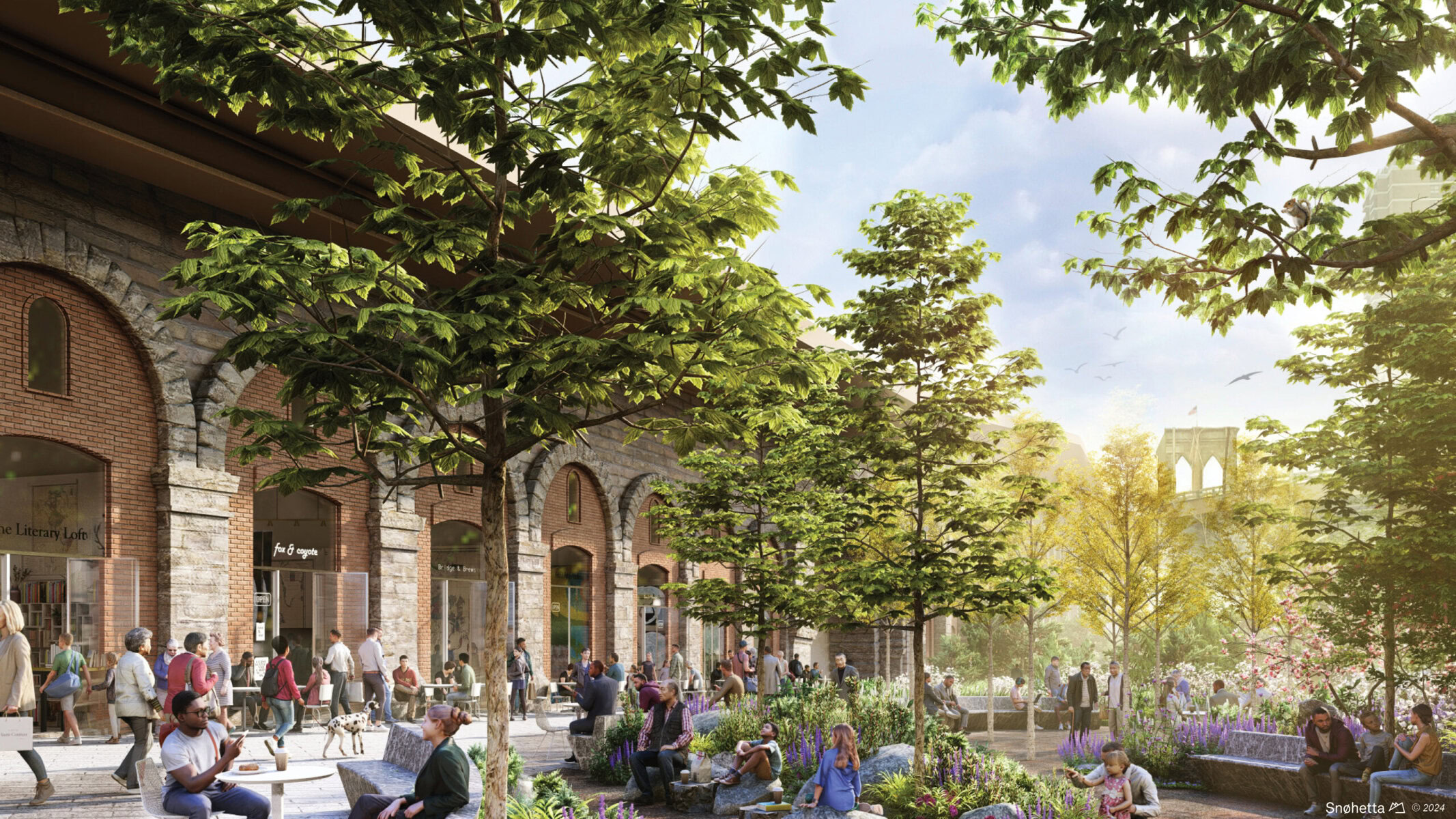
What is the status of the park now, and what are your hopes for it going forward?
We opened our very first acre on the 140th birthday of the Brooklyn Bridge, which was May 24, 2023. We are opening another three acres by the end of this year, which we are super excited about.
Our goal is to open the full nine acres that stretches all the way from City Hall to the East River. That includes a biodiversity forest, a swimming pool, a library and an actual naturally occurring sand beach at the East River. Of course, we don’t have the funding or the commitment for all of that.
What would you tell others who want to get more involved in public spaces in their communities?
When I first moved to New York 25 years ago, I lived in a 230-square-foot studio apartment with my then-boyfriend, now-husband. We chose to stay in the city because the city is our living room, the parks and public spaces are our living room. We are so lucky: You can walk around the city and come across musicians and artists who are incredible and inspiring.
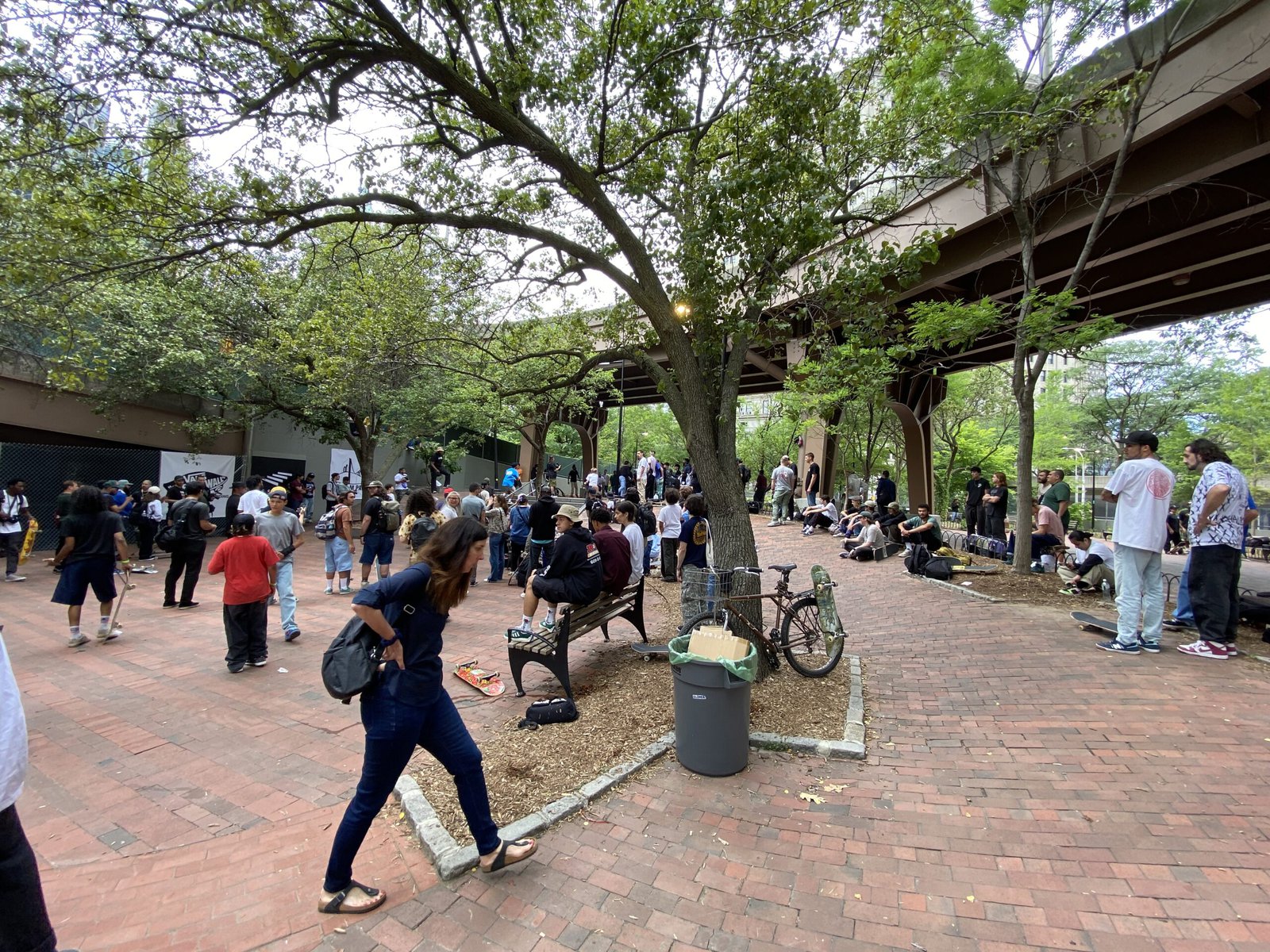
To me, the city is actually my home, and the apartment is the tiny bit of private space that I have to anchor myself in this space. Public space is critically important to all of us because you don’t have a choice — unless you are a literal hermit, you are forced to act and move and experience within public space every single day. So you should absolutely have a say and a role in shaping what it is.
One little secret that I’ve learned is sometimes you walk around the city and you feel like, “Oh, it’s so permanent because it’s in stone and concrete and glass.” But it’s not. Everything that stands here today in New York City, human beings dreamed up and built. There’s construction and cranes and sidewalk bridges everywhere because we are still changing it and it is constantly evolving. So if you have a chance, shouldn’t you have a say in how it could evolve to be beneficial for you and your community, your family and children?
To me, the answer is a resounding yes. Use your voice, stand up, say what you believe in, fight for what is important for you. And remember what part of it inspires you and nurtures your soul because that’s the part that you have to fight for, right?
So I would say: Absolutely get involved. Do it because it actually can happen. But it can’t happen if you don’t try.
This conversation has been edited for length and clarity.





